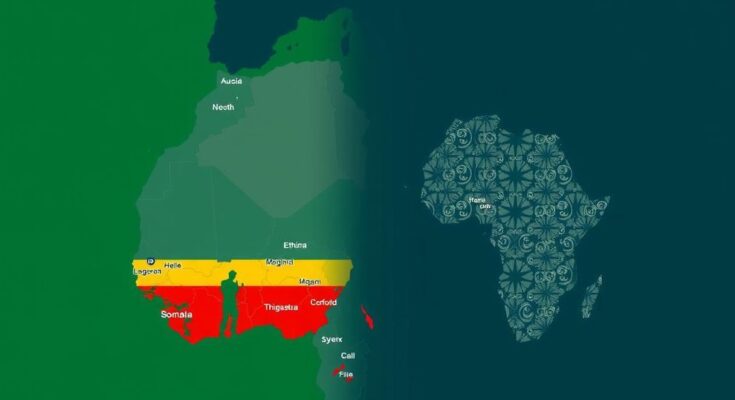A gathering on October 26-27 will address the political landscape influenced by the MoU between Somaliland and Ethiopia amidst electoral tensions. The relationship between Djibouti and Somaliland is strained, with allegations of destabilization. Somaliland seeks economic opportunities through a proposed naval base deal with Ethiopia, while tensions between Addis Ababa and Somalia evolve with the potential for reintegrating a former president into the federal government.
The impending gathering set for October 26-27 highlights the evolving political dynamics between Ethiopia and Somalia, particularly in the context of a memorandum of understanding (MoU) established earlier this year between Somaliland and Addis Ababa. This agreement has significant implications for the electoral battle between Muse Bihi, the incumbent president of Somaliland, and his principal opponent, Abdirahman Mohamed Abdullahi, with the upcoming elections poised to determine the MoU’s future. Simultaneously, tensions in the region have escalated, as evidenced by accusations of destabilization traded between the presidents of Djibouti and Somaliland. Djibouti is discreetly engaging in the training of new recruits for its republican guard while denying any hostile intentions towards its neighbor. However, it remains unsettled by the agreement struck between Somaliland and Ethiopia earlier this year. Moreover, Somaliland is actively promoting its proposition to lease land for an Ethiopian naval base, positioning this deal as a potential catalyst for substantial economic growth for both Kenya and the broader region. In light of heightened tensions with Somalia, Addis Ababa has taken steps to reintegrate the former president of the Somali region, potentially offering him a role within the federal government, a move that could further complicate the security dynamics in the area.
The complex interplay between Ethiopia, Somalia, and Djibouti is largely influenced by historical grievances and contemporary political aspirations. The MoU signed in January 2023 between Somaliland and Ethiopia represents a strategic alliance aimed at enhancing economic growth and military cooperation, while also stirring concerns about territorial integrity among neighboring states like Djibouti. As Somaliland seeks international recognition and economic stability through such agreements, existing rivalries become more pronounced, particularly with regard to security arrangements and political alliances. The forthcoming elections in Somaliland stand as a critical juncture for the region, as the outcome will reflect the degree of popular support for the MoU and could significantly alter the balance of power in the Horn of Africa. The involvement of regional players such as Kenya also complicates the dynamics, as they evaluate the potential economic impacts of a naval base in the region.
The upcoming elections in Somaliland are set to be pivotal, not only for the region’s governance but also for the broader security architecture in the Horn of Africa. The interactions between Somaliland, Ethiopia, Djibouti, and adjacent regions highlight a complex web of political maneuvering influenced by historical tensions and contemporary ambitions for sovereignty and economic progress. As these dynamics unfold, the potential for stability or further unrest remains contingent upon diplomatic engagements and public sentiments regarding the recent agreements.
Original Source: www.africaintelligence.com




